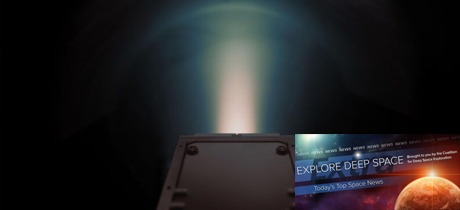In Today’s Deep Space Extra… Axiom Space reveals microgravity research for all-private astronaut mission to the International Space Station. NASA astronaut Jessica Watkins assigned to long-duration mission to the ISS.
Human Space Exploration
First all-private Space Station mission to include two dozen experiments
Coalition Member in the News – Axiom Space
UPI.com (11/17): Axiom Space announced yesterday that the crew on the company’s all-private astronaut mission to the International Space Station (ISS) will conduct about 25 medical and scientific experiments during their time in low Earth orbit. Some of the research includes an experiment on behalf of the Mayo and Cleveland clinics by mission pilot Larry Connor, research for the Montreal Children’s Hospital, Canadian Research Universities and Royal Canadian Geographical Society by mission specialist Mark Pathy, and an experiment by mission specialist Eytan Stibbe to benefit the Ramon Foundation in collaboration with the Israel Space Agency in Israeli Ministry of Innovation, Science and Technology. The mission is set to launch in February.
Next SpaceX NASA crew launch adds rookie astronaut Jessica Watkins
Space.com (11/18): NASA astronaut Jessica Watkins, a planetary geologist and one of 18 astronauts chosen for the agency’s Artemis Team in December 2020, has been assigned her first spaceflight. Watkins will train for a launch on the Crew-4 mission next April to the International Space Station (ISS) for a six-month tour of duty. She will join two NASA and a European astronaut previously assigned. Watkins will be the first African American woman assigned a lengthy ISS mission.
Hear how NASA alerted astronauts to incoming space debris after Russian anti-satellite test
Space.com (11/17): NASA has furnished audio of the call from Mission Control Houston to the International Space Station (ISS) crew on Monday alerting the astronauts and cosmonauts to the hazard created by a Russian anti-satellite test and the need for them to take refuge in their Crew-3 Dragon and Soyuz spacecraft.
Other News
U.S. officials: Anti-satellite test another sign of Russia’s aggressive intentions in space
SpaceNews.com (11/17): The U.S. Space Force on Wednesday condemned Russia’s anti-satellite test that generated an estimated 1,500 fragments of trackable orbital debris that could pose threats to the International Space Station (ISS) as well as other satellites. The threat could surpass that posed by China’s 2007 anti-satellite test, which left debris that just a week ago prompted NASA to manage an ISS avoidance maneuver.
New iodine-based plasma thruster tested in orbit
Arstechnica.com (11/17): French company ThrustMe’s large CubeSat Beihangkongshi-1 has successfully demonstrated in space that iodine can be as effective though much less expensive than xenon as a fuel for electric ion spacecraft propulsion.
How you can see the nearly total lunar eclipse Friday morning
NPR (11/17): The longest partial lunar eclipse in nearly six centuries and visible overnight in North America, South America, much of Europe, much of Asia, Australia, north and west Africa, the Pacific Ocean, the Atlantic Ocean, the Indian Ocean, and the Arctic gets under way early Friday or late Thursday depending on the time zone. The “Beaver eclipse,” in which the Earth’s shadow will fall across much of the Moon and recede, is expected to last about 3 1/2 hours and peak at 4:03 a.m. EST.

